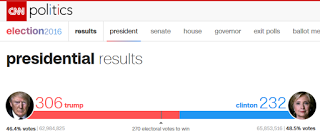I can really start this timeline with when I read a quote from Jomo Kenyatta something along the line of "does having two parties make you twice as democratic as we are?" Kenya was a one Party State and western democracies, such as the US, were trying to push "multiparty democracy".
One of the cold war staples was "free and fair elections", which seems laughable after the 2016 Presidential election.
I came up with this a while back (probably after the Philadelphia DNC).
My timeline is:
1980--Supported Anderson, but ended up voting for Carter, who lost anyway.
2000--Gore wins the popular vote, yet doesn't become president
2004--The Candidate I wanted to vote for, Gen. Wes Clark, dropped out before I had a chance to vote for him.
2008--Clinton v. Obama--Obama won and the pact was made for 2016
2015--Clinton is chosen to be democratic nominee before any votes are cast. Sanders is "drafted" by popular demand.
2016--Sanders does well to my surprise, but the system is totally rigged against him.
--AP calls the primaries for Clinton before the largest state in the Union, California, has voted along with 6 other states and territories.
--Between AP calling the election and DNC in Philly, it becomes obvious that I have no voice in the primary selection process and I DEMEXIT.
--DNC Philly makes it clear the Democratic Party isn't.
US parties are supposed to be "coalitions", but that doesn't really work and the Republicans have become the party of the "right" (I won't call it conservative since it isn't), The Democrats the party of the "Left": although many progressives and liberals are showing disgust with the Democratic Party (as are a lot of conservatives with the Republican Party).
Sanders was willing to take his candidacy to the end of the cycle. I have to admit that I was surprised he did as well as he did. But the Democratic Party isn't truly "democratic" and Clinton was the chosen candidate. It was said that the Dems preferred to lose with Clinton than win with Sanders.
But it is the lack of democracy in the process and unwillingness of either party to address this problem which drove me to the Greens. The Greens were the only party talking election reform. After all, Clinton was more about the big donors than the little guy (as the Sanders phenomenon pointed out).

It is the continued scapegoating with silly theories about Russian involvement, when it is pretty obvious that what cost the election was the electoral college. Neither third party candidate on their own stole the vote from Clinton either: numbers here.
Quite frankly, the reason I voted for Jill Stein over Hillary Clinton was that Stein was the only candidate who was addressing the issues I cared for: including election reform. I am not sure whether people who supported Clinton really knew, or cared, what she believed in. I say this because one of the incentives for writing this is a run in with a Clinton supported who somehow believed Clinton wasn't a hawk.
Quite frankly, I don't think it made a lot of sense to try and debate hardcore Clinton supporters because I am not sure what they thought about Clinton or her politics. I only know I didn't like what I saw when it came to her policies.
They weren't what I believe in.
Or that I could trust her.
The problem with the Russian scapegoating is that if you analyze it, you find that the real failures were from the Democratic Party. But it's a lot easier to blame someone else than address the systemic failings of US politics. And I won't be voting for the two major parties unless some drastic changes happen.
See also:
The Democrats' performance as an opposition party? Pathetic
